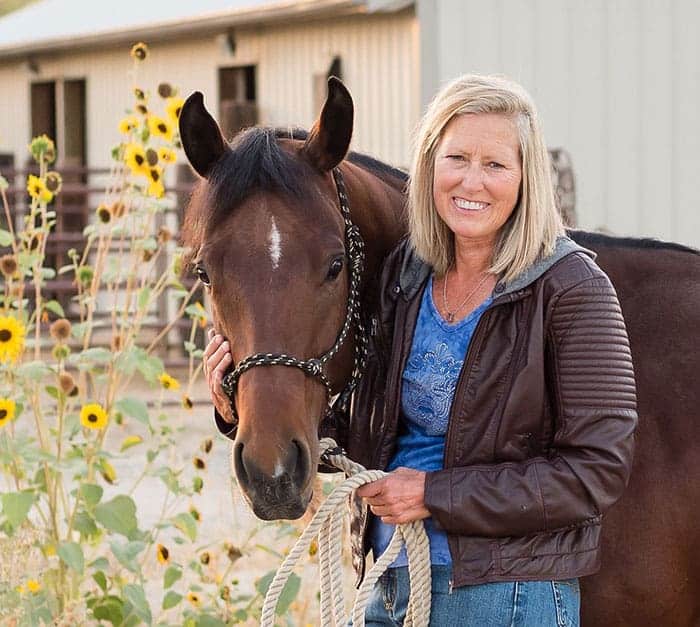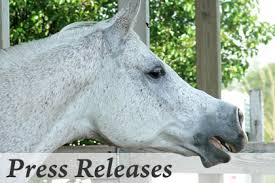It’s Vacation Time!
- Posted by Alayne Blickle
Summer time often means vacation time and whether that is going to a weekend horse show or actually taking time off away from horses, the word “vacation” is one that often makes us horse owners uneasy. That’s because, if you’re like me, you worry about someone else undertaking the huge responsibility, with all its little and big idiosyncrasies, of caring for horses, farm or ranch, dogs, cats, etc.
Matt and I just went on a week’s vacation and we returned refreshed and to a wonderfully well-cared for ranch–as well to a huge compliment! My friend Diana, who I had hired to horse/ranch sit for us while we were gone, told us our place was “easy to care for.” Chore-efficient, in other words. That also translates to safer, cleaner and less likely to have horse issues. When chores are too much like “work,” whether it’s us doing them or a caretaker, they are simply less likely to get done. And the more manure that piles up, then the more flies, odors, runoff and mud that’s going to follow suit.
Want some ideas on chore efficiency to help you get out the door on vacation? Here you go:
-
Review equipment needs for daily chores. Having the right equipment for chores not only makes things more efficient but also ensures that chores get accomplished when you’re tired, it’s late or when someone else is filling in. Consider getting a manure cart that’s easy to push and dump into the compost pile. Is your manure fork half broken? The heavy-duty plastic-tined type with a bent edge is made specifically for cleaning horse stalls and paddocks.
-
Bring in footing material for paddocks, confinement areas and other high-traffic areas to avoid dust in summers or mud when it rains. Dust is no fun for horses or humans and can be a health risk for horses and humans. Possible footing choices are crushed rock (small enough to fit through the tines of a manure fork) or coarse washed sand.
-
Compost manure in a convenient location that’s easy to access. Compost is a rich soil enhancement that improves the health of both plants and soil and helps to retain moisture. Heat generated in the compost process kills worm eggs, fly larvae, disease pathogens, and weed seeds. Composting also reduces odors as well as the sheer volume of material piled up — the composting process will decrease the size of the pile by about 50% (this takes about two to six months.) Plus, it provides you with a free, easy source of compost, an important soil amendment. Locate your compost pile near stalls and paddocks, as well as near pastures or gardens where the finished product can be utilized.
-
Create good drainage. Diverting clean rainwater away from paddocks will not only keep your animals drier, it will make life easier for stall cleaners so that they don’t have to wade through muck to care for your horses. Install gutters and downspouts for all outbuildings and divert clean rainwater away from high traffic areas.
-
Have water supplies and hoses nearby. A horse drinks 8 to 12 gallons of water per day. Water should be fresh and available at all times. I really like automatic waterers because your horse always has a supply of clean, fresh water. Avoid potential risks by being sure your horse’s water container is free of rough edges and rust. BONUS: Set up a water supply that won’t freeze or get icy cold for the winter, too.
-
Review lighting for stalls, feed storage areas, and tack rooms. Is it bright enough for you to care for your horses at night or in the dark? If someone needs to use a flashlight to see if hay is mold-free, that probably means it’s not bright enough, and not chore efficient!
-
Check fencing before you leave to be sure everything is in working order. This precaution will help eliminate escaped horses and/or potential injuries on broken fencing.
-
Bag individual supplements. If you have several horses or ones with special needs, consider pre-measuring daily supplements into labeled, ziplock baggies. Since we have many horses, each with different health needs, we always do this when we go out of town, rather than expecting a care taker to be responsible for remembering and measuring out each horse’s daily required supplements.
-
Leave daily care instructions, release form and contact list. We always write up care instructions in an outline form. The release form is a signed form and something recommended to me years ago by a veterinarian. It gives the caregiver permission to make emergency decisions on our behalf. It also states that we will be responsible for expenses occurred by our animals. The contact sheet has our phone numbers, neighbors to contact if there’s a problem, veterinary contact info and other emergency info.
-
Consider emergency preparedness such as having flashlights on hand in easy-to-access locations, a battery-powered radio, and a car cell phone charger. Even though it’s summer you never know when a lightning storm might take out the power or phone lines. This is one mistake we made–not anticipating summer thunderstorms and the resulting power outage–poor Diana couldn’t find our flashlights anywhere, nor did she have the number on hand to report the power outage.
Having your horse place set up efficiently will make your horse life easier and will give you peace of mind to head out on vacation
Create a free account with TheHorse.com to view this content.
TheHorse.com is home to thousands of free articles about horse health care. In order to access some of our exclusive free content, you must be signed into TheHorse.com.
Start your free account today!
Already have an account?
and continue reading.

Written by:
Alayne Blickle
Related Articles
Stay on top of the most recent Horse Health news with













5 Responses
re: It’s Vacation Time!
Michelle, I am so sorry for your struggles; I feel your pain. I strongly encourage you to seek support from others, either from support groups or social services. They can be a tremendous resource. Then when you are ready and feeling strong again there
re: It’s Vacation Time!
Sandra, chemical use can make life complicated and add concerns. I would find out exactly what type of herbicide has been used on your hay and what the manufacturer’s recommendations are concerning it’s use. Sounds like your hay grower might have been
re: It’s Vacation Time!
Composting has become more complicated for me now that my hay grower uses weed killer on his fields. For several years I watched my garden wither and die & didn’t understand why until I learned that the weed killer goes through the horses &am
re: It’s Vacation Time!
I am not sure where to post this, so here goes! In 1998 I was T-boned in a car wreck. Multiple broken bones, and a traumatic brain injury. I actually rode my APHA mare as physical therapy before I ever walked again. On April 28th, 2011 Geor
re: It’s Vacation Time!
Congrats on your AHP award, Alayne! 🙂